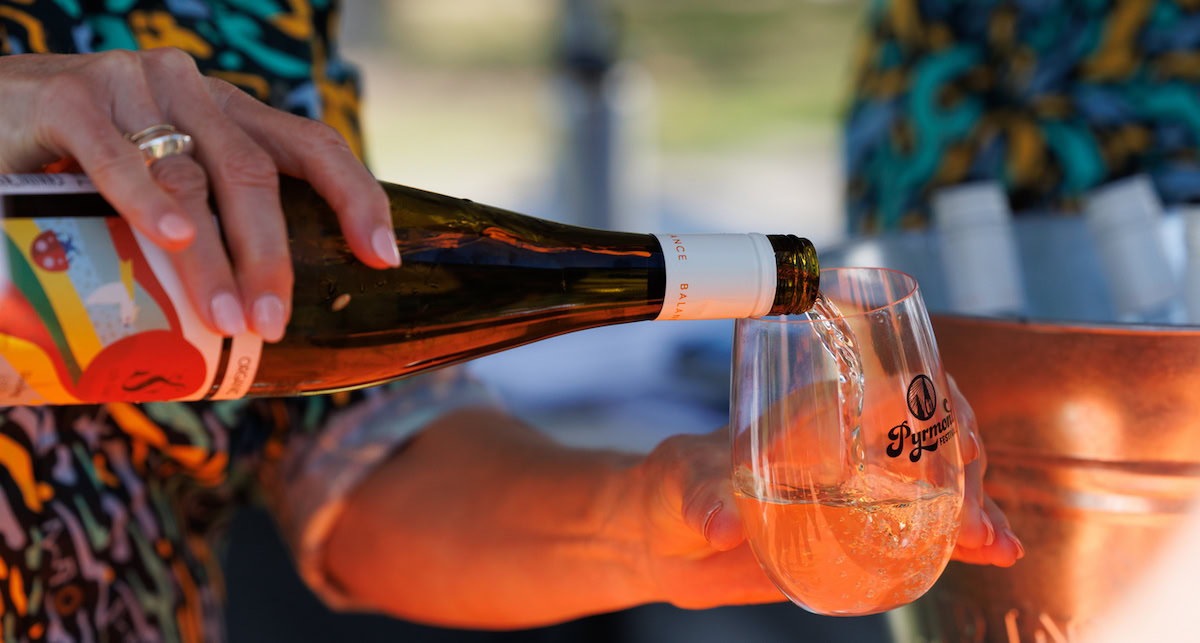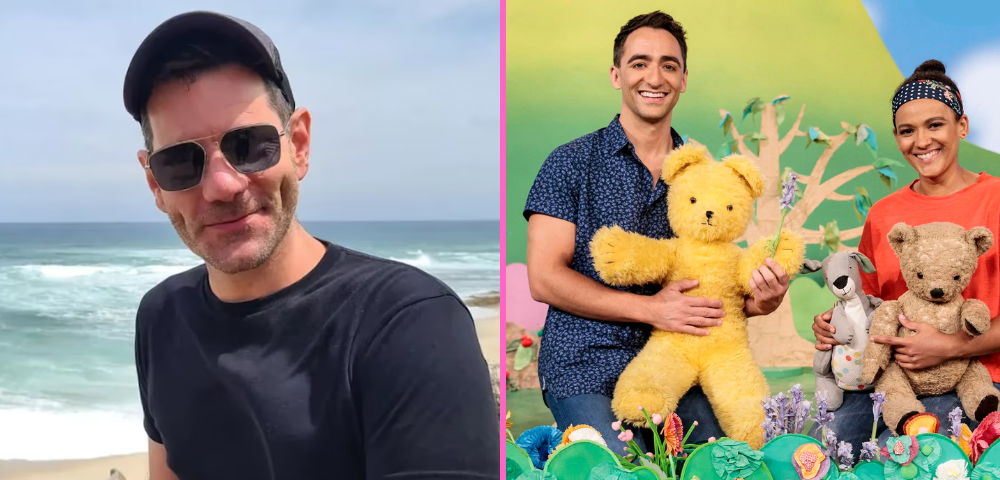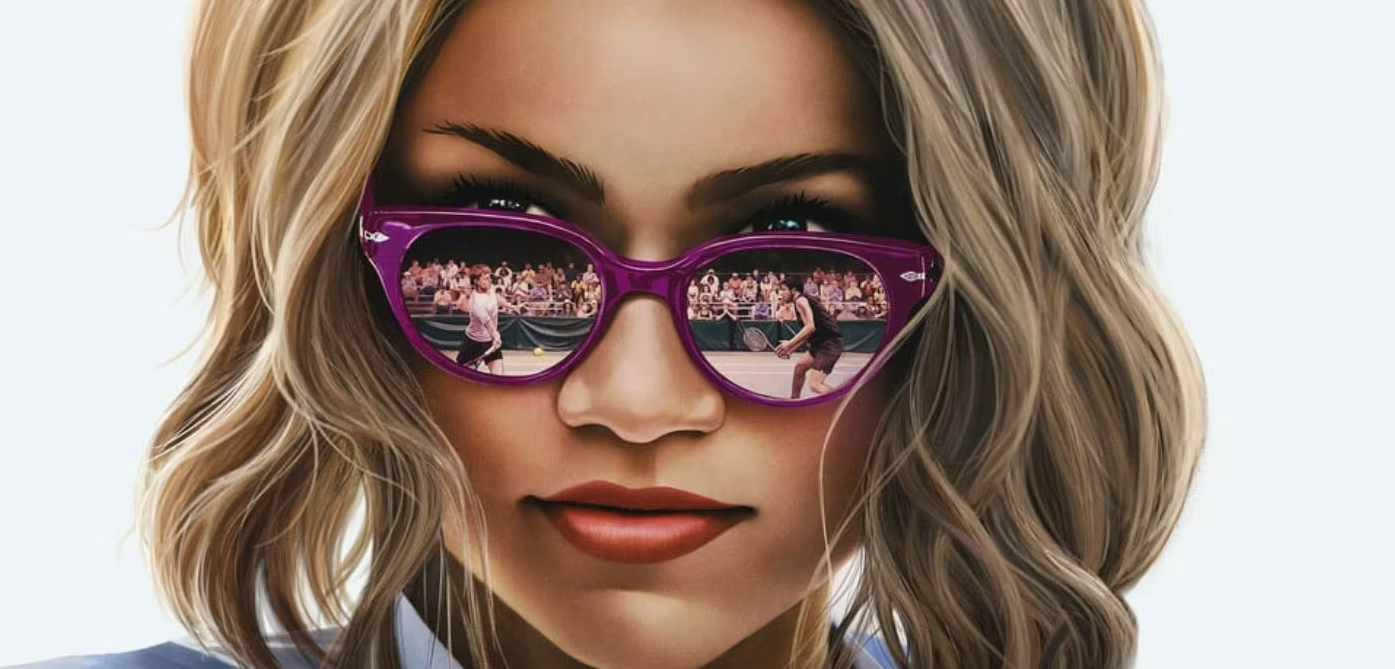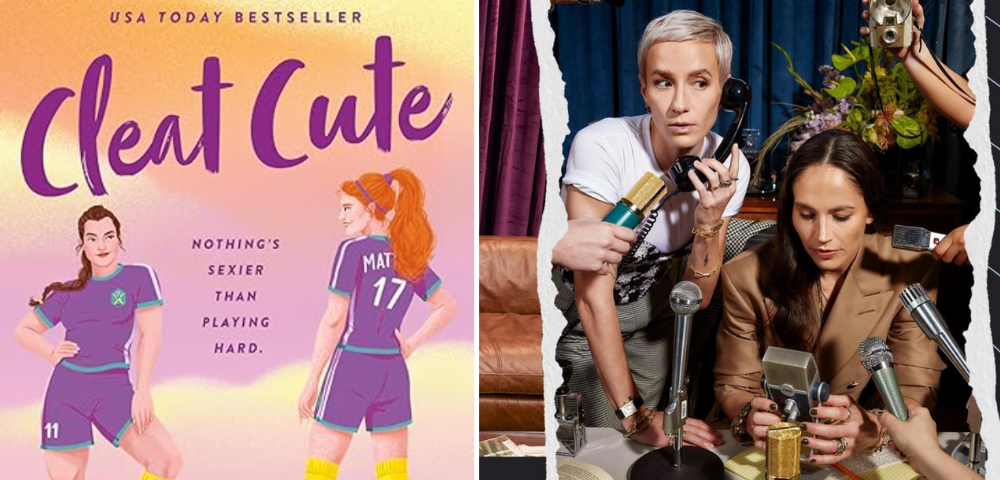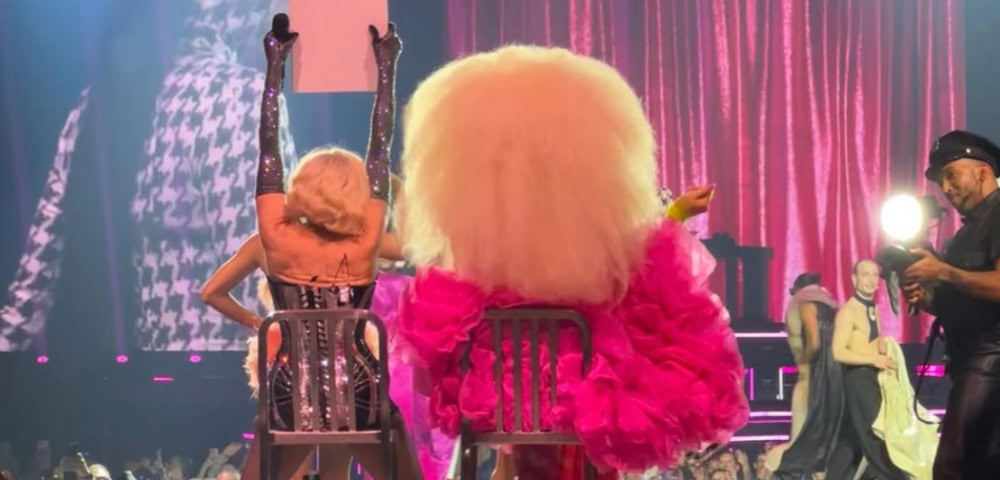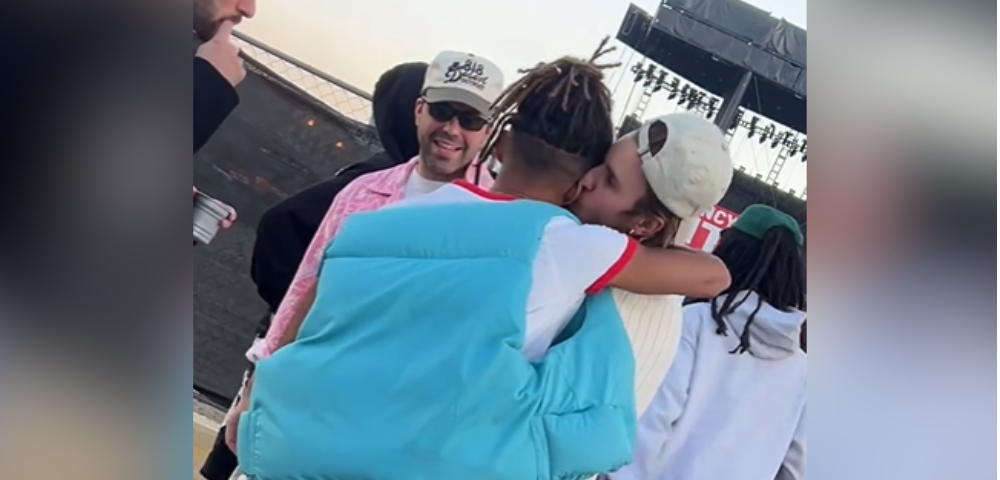
‘I had a crush on Guy Pearce in Priscilla’: Dustin Lance Black
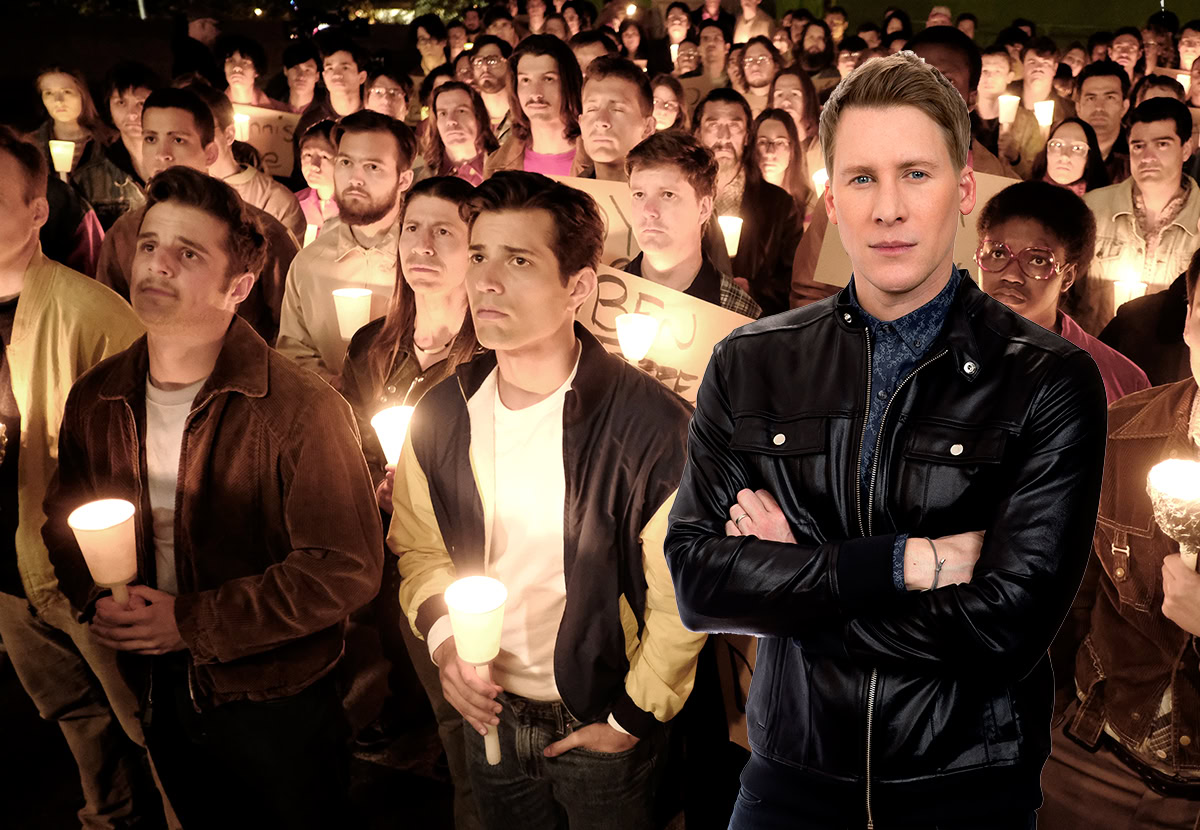
THE story of the fight for civil and human rights for LGBTI people is far from untold in much the same way it’s far from complete, and with When We Rise, Dustin Lance Black is reprising his role in the telling.
The American writer, director, producer and activist has forged something of a fabled Hollywood career out of looking from the outside in.
“I grew up in a very conservative part of the United States. I grew up in Texas, I grew up in a very religious home, I grew up in a military home,” he tells the Star Observer by phone.
Black most famously brought this upbringing to two significant projects: the HBO series about polygamy, Big Love – on which he was the sole writer with a Mormon background – and Milk, the 2008 Gus van Sant-directed biopic of Harvey Milk for which Black won an Academy Award.
Black would later throw shade at singer Sam Smith who, upon winning his Oscar, suggested he might be the world’s first openly gay winner.
When we ask, frivolously, who Black thinks will be this year’s First Openly Gay Oscar winner he laughs, and despite being taken somewhat aback, responds diplomatically.
“That’s a funny trick question,” he says. “I have no idea. I hope we have many. We certainly have opportunities this year.”
2011 saw the premiere of Black’s play 8, which used court transcripts, interviews and journalistic records to document the federal trial that saw the overturn of California’s Proposition 8, which eliminated the rights of same-sex couples to marry.
He has since become engaged to British diver Tom Daley.
The genesis of Black’s latest project chronicling the LGBTI rights movement, When We Rise, began four years ago.
“I heard that ABC in the United States was interested in doing an LGBTQI history project of some sort which was shocking to me,” he says.
“ABC was the channel we were allowed to watch because it told family stories. And so four years ago I was incredulous, and I went in to meet with the executives at ABC and look them in the eye to see if they were serious about this – and they were.
“And they were serious enough that they financed a year of research to figure out, well, whose stories would I tell?”
The stories Black had available to him were myriad, but he ultimately chose three significant figures to focus the series on for a specific reason. He felt like the movement was becoming dangerously myopic, dangerously self-interested.
“And that’s a mistake because any minority on the planet has to have alliances with other minority groups in order to gain any sort of political power or safety,” Black adds.
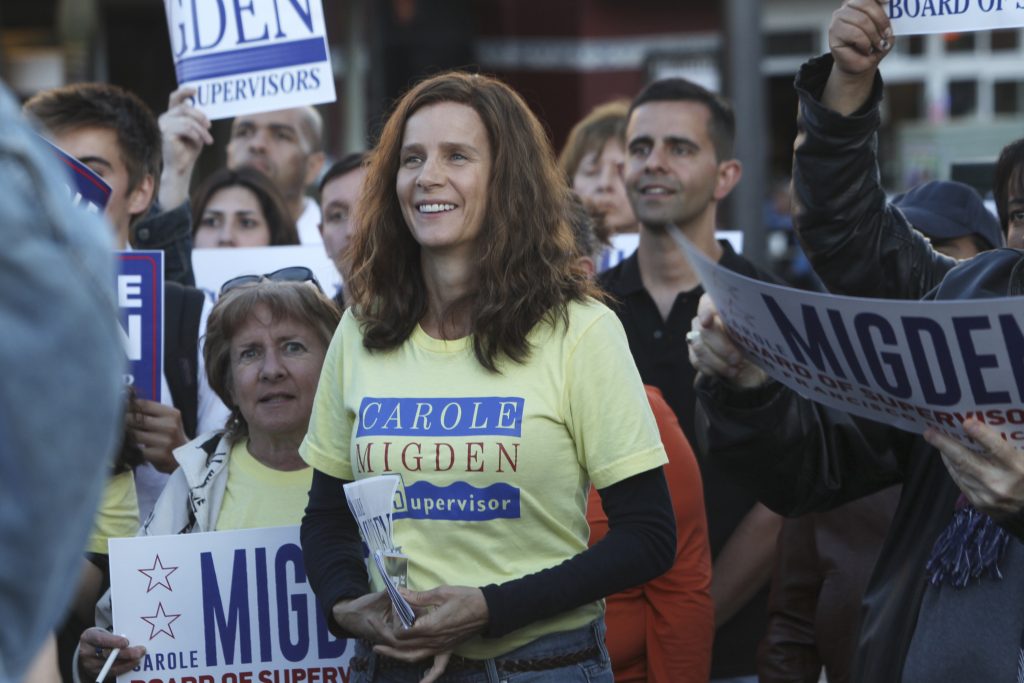 “If we sat out on our own, if we tried to exist in isolation, well, you just have to look to history to see how lots of rights are rolled back.
“If we sat out on our own, if we tried to exist in isolation, well, you just have to look to history to see how lots of rights are rolled back.
“So I designed it by starting to talk to people who had been in other civil rights movements as young people before the LGBTQI movement. I met Roma Guy [who was part of] the women’s movement from when she was just a teenager, a young woman; Ken Jones, who had been in the military and as a young kid had been part of the black civil rights movement; and of course Cleve Jones, who was a part of the peace movement.
“I started there because I thought, ‘I need people to understand that the LGBTQI rights movement is built on the shoulders of other civil rights movements and to understand the power of that interconnectedness.’”
Roma Guy, played by Mary-Louise Parker and Emily Skeggs, co-founded San Francisco’s Women’s Building, the first woman-owned and operated community centre in the United States.
Ken Jones, played by The Wire’s Michael K. Williams and astonishing newcomer Jonathan Majors, is an African-American community organiser and Vietnam veteran who was confronted by racism in the movement and led efforts to diversify its politics and combat LGBTQI youth homelessness.
Cleve Jones, portrayed by Guy Pearce and Austin P. McKenzie, co-founded the San Francisco AIDS Foundation where he conceived of the AIDS Memorial Quilt and remains a prominent advocate for LGBTQI and HIV-positive people to this day.
The miniseries also stars Rachel Griffiths as Guy’s wife, Diane, Whoopi Goldberg, Rosie O’Donnell, Carrie Preston, David Hyde Pierce, Denis O’Hare, and Ivory Aquino as trans rights activist Cecilia Chung.
Black stressed the importance that the stories told in When We Rise reflected the evolution and diversity of the community.
“You have to be blind to be in the LGBTQI movement and not see how diverse it is, and I wanted it to be reflective of how diverse our movement truly is.”
“I needed people who had lived those authentically diverse experiences to help this gay white guy get it right. And that means if you look at my writers room and my directors slate, there’s gay and straight and black and brown and white and men and women.
“And certainly as we started to crack trans stories – there are four of those in the show – we made sure to cast openly trans actors and actresses to play those to help bring those experiences to the screen in authentic fashion. And it really pays off.
“Diversity behind the camera lends to authentic diversity in front of the camera, and that was important to me. Because if you’re going to do a show called When We Rise it shouldn’t just be gay white men in front of and behind the camera, it should be reflective of the word ‘we’.”
When We Rise’s scheduled airing in the United States is due to be interrupted by an announcement by Donald Trump, which feels symbolic of the disruption of progress his election represents.
With the resistance to Trump’s policies already coalescing, Black hopes the lessons of When We Rise can function as a blueprint for the growing movement.
“The show is built in two ways. To create unification, for one; you see in the title that ‘we’ is the biggest word in it. That ‘we’ in the early years is about how we came together from various groups of people who were discriminated against to build this faster-moving, more effective LGBTQI rights movement.”
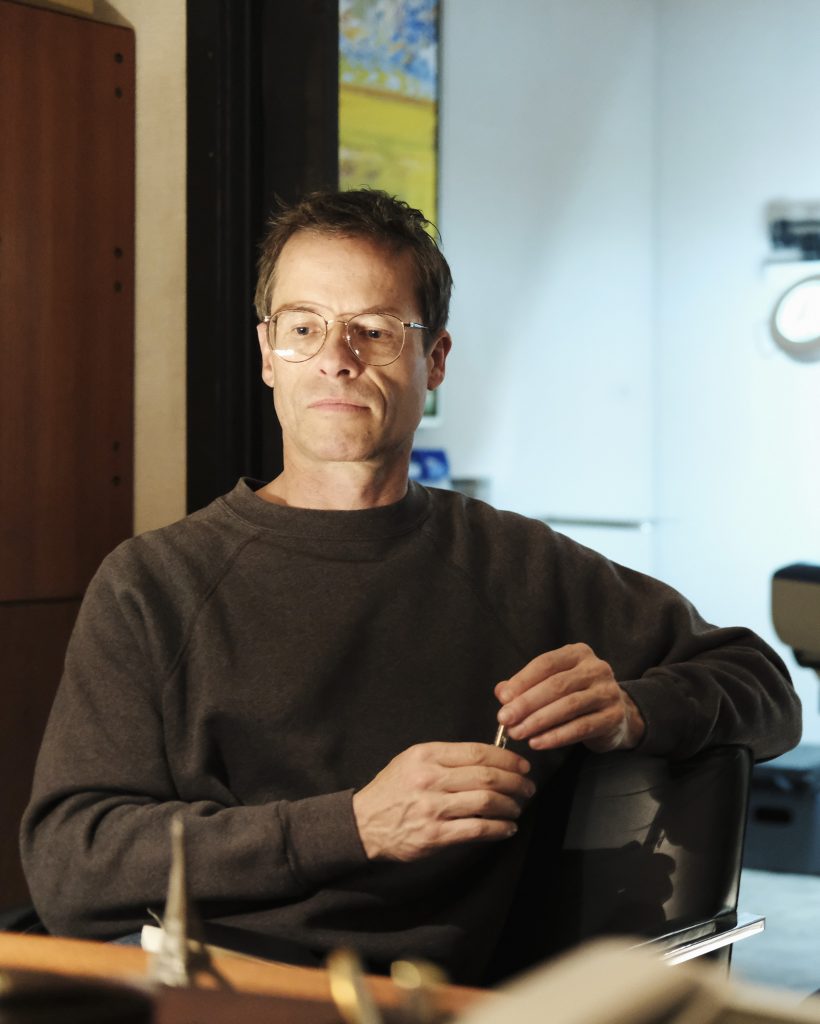 “But number two, we are speaking the language of family. This show is about LGBTQI families, it’s about the families we lost; who came out or were outed, about makeshift families that they built to survive, and about the families we were eventually able to have and to raise.”
“But number two, we are speaking the language of family. This show is about LGBTQI families, it’s about the families we lost; who came out or were outed, about makeshift families that they built to survive, and about the families we were eventually able to have and to raise.”
“And that language of family is a universal language, even in the United States, which is so divided at the movement. Both Americas speak that language and I would argue that in Australia, whether you are conservative or not, you speak the language of family.”
“That creates a different kind of ‘we’, perhaps a more unexpected ‘we’ – which is that people who might think they don’t know any LGBTQI people are going to find out they probably do, and that they have more in common than they thought, and that perhaps even LGBTQI families in Australia deserve the protection of the word ‘family’ and the laws that go with it.”
And Australia finds itself represented in the series through stars Pearce and Griffiths, with whom Black says he had long dreamed of working, and who both have long associations with the queer community through their work.
“From the very beginning, Guy Pearce in Priscilla: Queen of the Desert? I had such a crush on him!”
“We had a meeting with Rachel Griffiths where it was supposedly these meetings where you see if you want to work together, but really both sides, her and I, knew we wanted to work together already. So we very quickly moved from that to, well, who else is going to be in this?
“She very quickly brought up Guy and I had to admit to her immediately that we had already submitted it to him, he was my first choice as well. And I was always curious – I haven’t asked her – if she made a phone call to him, because within 24 hours we got the call from his people that he wanted to do it.”
“I’ve had the great pleasure of working with some of the most talented actors in the world, and I’ll tell you, this experience was right up there with the best of my career. They were so incredibly dedicated, they became very close to the real people they were depicting.”
Ultimately, Black stresses that, at its core, When We Rise exists to educate where others could not.
“I cannot overstate how much we lost in the plague called AIDS. And that robbed not just the world of a generation of talented, brilliant gay men – and beyond gay men at a certain point – but it also robbed a young generation of LGBTQI people of their forefathers.”
“The contact that happened often by using stories to help the new generation of any minority be emboldened to feel stronger and to give them a path forward, that was missing. So much of my work on this planet is about helping to fill in that gap and those missing pieces.”
The series, gorgeously wrought and immaculately performed, reaches out in the hopes of changing hearts and minds, and functions as a corrective to a lack of mainstream historical accounts of the LGBTI rights movement’s progression.
“Shame has silenced our stories. For too long, we haven’t told our stories. For too long, TV networks and movie studios would not greenlight our stories and publishers wouldn’t put the books that told our stories out in wide, popularised fashion.
“So there wasn’t this baton pass to the young generation that’s so, so necessary in a movement. And so certainly this show would be one piece of bridging that gap, of bridging that divide. I always see this series as passing a torch; it is not saying that we’ve won and that we’re done. This is saying: here’s what’s happened. Here’s how we did it. Now it’s your turn.”
When We Rise will be fast-tracked to SBS On Demand beginning March 1, 2017 as part of their Mardi Gras season. It will then begin screening on SBS on March 11 at 8:30pm.




